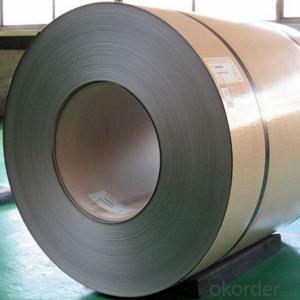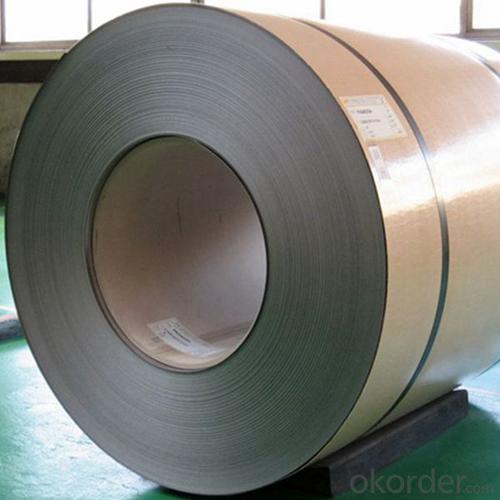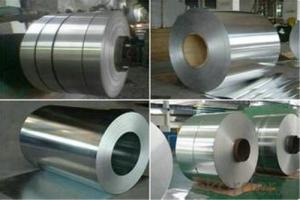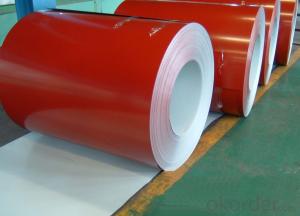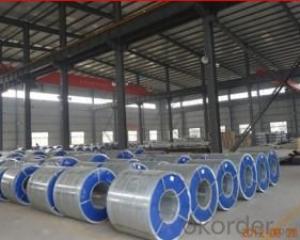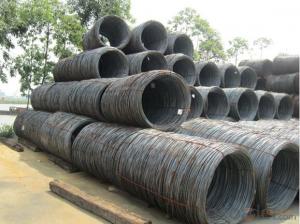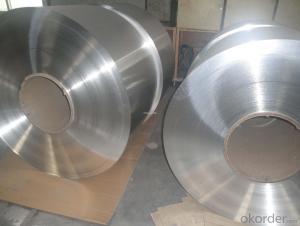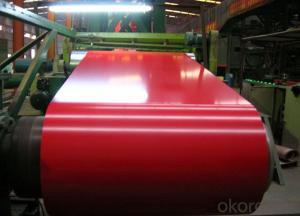Stainless Steel Made 304 Stainless Steel Plate Steel Plate
- Loading Port:
- Tianjin
- Payment Terms:
- TT OR LC
- Min Order Qty:
- 25 m.t.
- Supply Capability:
- 10000 m.t./month
OKorder Service Pledge
OKorder Financial Service
You Might Also Like
Specification
Description for Stainless Steel Coils/Sheets:
Prodcut:Stainless Steel Coil
Thinckness: 0.20mm-8.0mm
Width:1000mm, 1219mm(4 feet), 1250mm, 1500mm, 1524mm(5 feet),
1800mm, 2000mm, 2200mm, 2500mm,and customizable
Ni:0.8~1.2% Cu:1.4~1.5% Cr:14
Standard: ASTM, JIS, GB, BS, DIN etc
Grade: 200series&300series&400series
Surface finish: 2B, BA, 8K, 6K, Mirror Finished, No1, No2, No4, Hair Line with PVC
Manufacture technology: cold rolled/hot rolled
Thickness Tolerance: +/-0.1mm
Width Tolerance: +/-10mm
200 Seriers: 201,202
300 Seriers: 301, 304, 304L, 316L, 309, 310S,321
400 Seriers: 410, 410S, 409L,430
Our Service
1.High quanlity and reasonable price.
2.Customized on-demand.
3.Reasonable shipping and fast delivery.
4.Free sample.
Specifications for Stainless Steel Coils/Sheets:
ITEM | DESCRIPTION |
Commodity | Stainless Steel Coil |
Material | 201, 202, 301, 321, 304, 304L, 316, 316L, 309S, 310S, 410, 430, etc. |
Surface | 2B, BA, 8K, No. 4 No.1 |
Standard | AISI, ASTM, DIN, EN, GB, JIS, etc. |
Specification | 1. Thickness : 0.3mm -120mm |
Application | 1. Automotive: Automotive trim and molding/Difficult-to-form exhaust-system |
Process | Hot rolled / cold rolled |
Payment | L/C,T/T |
MOQ | 20 Ton |
Productivity | 700 tons per month. |
Package | Standard seaworthy export packing or according to the customers' request. |
Delivery Time | It is based on the order, normally within 30 days after receiving your advance payment. |
Note | We can produce other standard as the customers' requirement. |
Detail picture for Stainless Steel Coils/Sheets
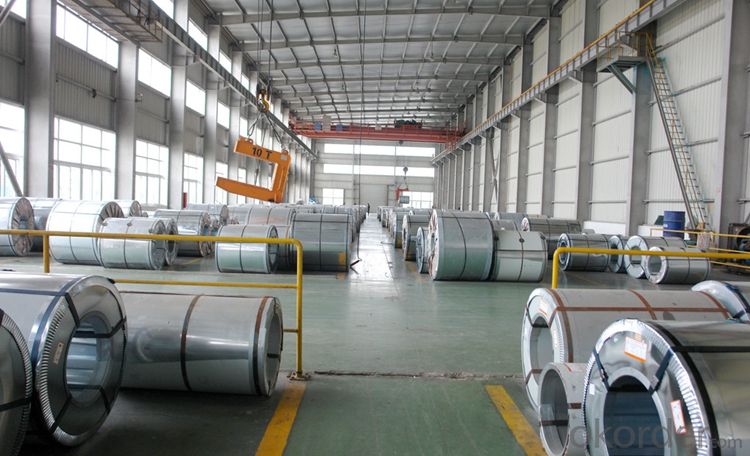
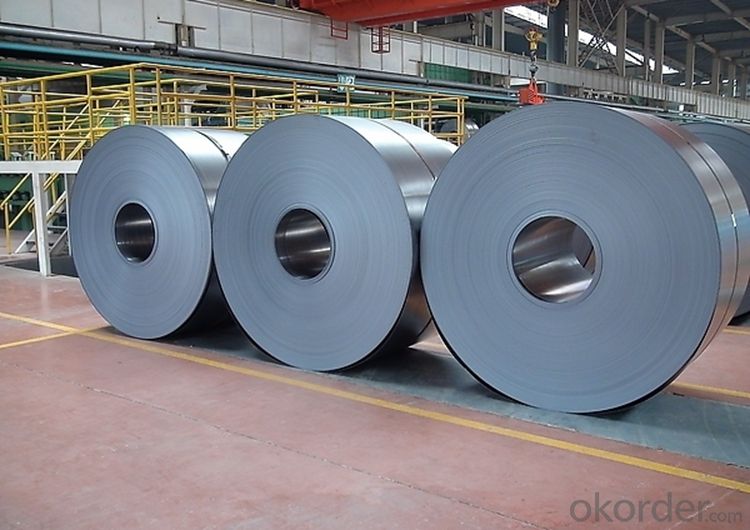
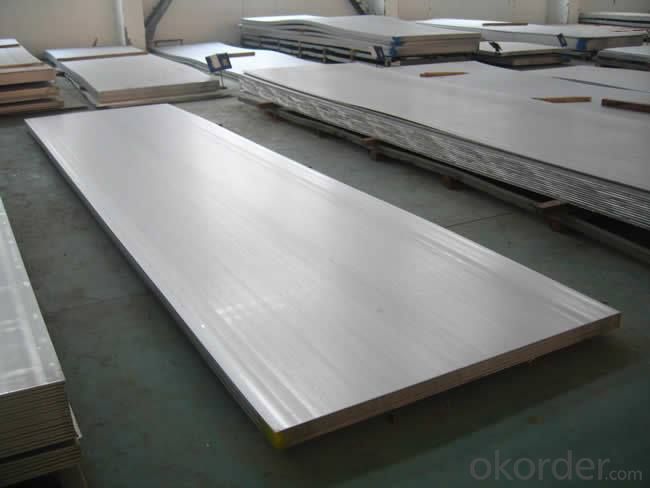
Application of Stainless Steel Coils
(1)Boiler heat exchanger,
(2)Chemical industries,
(3)Hardware fields,
(4)Construction material,
(5)Kitchen utensils,
(6)Building construction,
(7)Medical equipment,
(8)Chemical tank,
(9)Pipe etc
Export Markets for Stainless Steel Coils/Sheets:
Our target market is the international market. Every year we export most of products to countries like India, Pakistan, South Korea, Brazil, Australia, South Africa, Spain, Sri Lanka, Taiwan, Hong Kong, etc.
FAQ for Stainless Steel Coils/Sheets:
Q: How long is the delivery time?
A: Normally 30-40 days, but mostly according to the specific requirements or the quantity
Q: Could you send me sample?
A: We can supply you with the sample for free, but the delivery charges will be covered by customers.
FAQ for Stainless Steel Coils/Sheets:
Q: How can I get the samples?
A: If you need some samples to test ,please pay for the transportation freight of samples and our samples are free for you.
Q: How can I get your price list?
A: Please send us your email or fax and order information – Quantity, Specification (steel type, thickness, width, surface finish), then I can send you the price list.
- Q: Can you use regular welding rods when welding stainless steel?Thank you.
- Yes you can use regular welding rods for stainless steel. But you will not have the properties of the stainless. The weld joint will have a different color than the stainless if you grind/grain/finish the weld. It could also rust. The joint could be weaker. It is best to use a rod that comes as close to the base metal stainless as possible. (30 years welding - certified)
- Q: On a free standing carport with an 8 inch, 22 foot long aluminum i-beam, would a steel 8-inch i-beam be just as strong? I am looking into it since they are cheaper.
- Structural steel is stronger than structural aluminum. If the structural design is adequate for using an 8 structural aluminum I beam, you can certainly use an 8 structural steel I- beam and if the price is better, you can also use a 10 structural steel light weight channel. If it is on the coast, prime it well and keep it painted. Potential corrosion trouble spots and fasteners can be sprayed with automotive undercoating.
- Q: What are the common challenges faced in steel coil production?
- Some common challenges faced in steel coil production include ensuring consistent quality and dimensional accuracy, managing the high energy consumption involved in the production process, handling and transporting heavy coils safely, and minimizing the risk of surface defects and damage during processing and storage. Additionally, maintaining efficient production speeds, optimizing material utilization, and meeting customer demands for timely delivery can also pose challenges in steel coil production.
- Q: Can steel coils be coated with color-changing materials?
- Yes, steel coils can be coated with color-changing materials. These materials are typically applied as a topcoat or overcoat on the steel surface, allowing the coils to exhibit different colors or hues based on external factors such as temperature, light, or chemical reactions. This coating technology can provide visual appeal, aesthetic versatility, and even functional benefits to steel coils in various applications.
- Q: What is the role of steel coils in the production of storage tanks?
- Steel coils are used in the production of storage tanks as they provide the necessary material for constructing the tank's outer shell. These coils are shaped and welded together to form the tank's cylindrical structure, ensuring its strength, durability, and ability to withstand the pressure and weight of the stored materials.
- Q: How are steel coils used in the production of transportation systems?
- Steel coils are an essential component in the production of transportation systems as they are used to manufacture various parts such as car bodies, chassis, and other structural components. These coils are shaped and processed to create different forms of steel, which are then used in the construction of vehicles like cars, trucks, trains, and ships. The durability and strength of steel make it an ideal material for transportation systems, ensuring safety and reliability.
- Q: What are the different methods of storing steel coils?
- There are various ways to store steel coils depending on the specific requirements and limitations of the storage facility. Some commonly used methods include: 1. Stacking: Steel coils are stacked on top of one another in a stable manner, maximizing vertical space. However, careful stacking is necessary to maintain stability and prevent damage. 2. Block stacking: Steel coils are arranged in blocks, with each coil placed directly on top of another. The blocks are then stacked to optimize space. This method provides stability and easy access to individual coils, but additional equipment may be needed to prevent damage. 3. Coil cradles: These are specialized racks or frames designed to hold steel coils horizontally. They offer support and prevent rolling or shifting, making them suitable for smaller coils or when quick access is required. 4. Coil saddles: U-shaped frames specifically designed to hold and support steel coils vertically. They are often used in conjunction with block stacking or stack storage methods, providing stability and preventing rolling or collapsing. 5. Coil racks: Steel structures designed to hold multiple coils in an organized manner. They can have multiple levels or tiers, maximizing space efficiency. Coil racks are typically used for larger coils and can be customized for specific dimensions. 6. Automated storage systems: In large-scale facilities, mechanical systems such as coil cranes or coil carousels are used to transport and store steel coils. These systems ensure efficient and fast retrieval in high-volume operations where frequent coil handling is necessary. When determining the most suitable storage method for steel coils, factors such as size, weight, accessibility, and environmental conditions should be considered. Proper handling, labeling, and regular inspections are also crucial for maintaining the integrity and longevity of the stored coils.
- Q: Hey Guys, I'm planning on purchasing a bmx bike and I have been recommended by many people the Kink Launch 2012. I'm thinking of getting it but the frame is made from High Tensile steel and I know the chromoly is stronger and more expensive, but I plan to use my bmx just to chill, ride with friends and some times go through dirt trails at my park, I would like to know, how strong Hi Tensile steel is and can it handle jumps not massive jumps but like jumps where you get like 3 feet high (1m) just for fun, I might go to the skate park but I'm not gonna do tail whips and massive jumps, I just want it as a mobile piece of transportation. I don't want to buy a mtb because I already had 3 of them and they are not practical to take with you on holidays.So, do you think the Kink Launch 2012 is good enough or should I cough up an extra $80 and get the gap ($500 AU)? As I said I ain't gonna do huge jumps.
- High tensile steel could mean almost anything. SAE 4130 Chrome-Moly steel is the de-facto standard for steel bikes frames. High tensile steel could actually mean the same thing since chrome-moly is classified as high strength steel. The strength of the frame depends as much on the quality of the welds and on the size/thickness of the tubing as much as anything else. I'd say what kind of steel you use makes only a minor difference. One reason you want to buy bikes from reputable name-brand companies is they tend to have strict quality controls, this is particularly important when it comes to welds. Welds are always the weakest part of any bike frame, don't let anyone tell you different. 99% of the time if something in the frame breaks, it'll be at the welds. hope this helps.
- Q: What are the common surface treatments for galvanized steel coils?
- The common surface treatments for galvanized steel coils include passivation, chromate coating, and oiling. Passivation is a process where a thin layer of protective material, such as zinc phosphate or chromate, is applied onto the galvanized steel surface. This layer helps to enhance the corrosion resistance of the steel by providing a barrier against moisture and atmospheric elements. Passivation also improves the adhesion of subsequent coatings or paints that may be applied to the steel. Chromate coating, also known as chromating or chromate conversion coating, involves the application of a thin layer of chromate onto the galvanized steel surface. This coating provides an additional layer of protection against corrosion and improves the appearance of the steel. Chromate coatings can be clear or colored, depending on the desired aesthetic. Oiling is another common surface treatment for galvanized steel coils. This involves the application of a thin layer of oil onto the surface of the steel, which helps to prevent the formation of rust and corrosion during storage and transportation. Oiling also provides temporary protection against moisture and other environmental factors until the steel is further processed or used in its final application. These surface treatments are commonly used to enhance the performance, durability, and appearance of galvanized steel coils, ensuring that they can withstand harsh conditions and maintain their quality over time.
- Q: Hi, I need to know why stainless steel is rust proof please tell me its for my science project. :)
- Stainless steel is characterized by the presence of chromium. Chromium oxidizes like aluminium does, by passivation, that is, it forms a though oxide layer that sticks to the metal underneath and protects it. On the other hand, iron oxidizes by turning into rust, which is a brittle material that flakes off, exposing the metal under for more oxidation. Now, what happens when you have a metal that is made of both iron and chromium? Any iron on the surface will rust and flake off (at the atomic level, so do not expect to see much rusting) until the surface is a pure chromium layer (again, we are talking about a layer that is a few atoms thick) and that chromium will oxidize but stay put. Then rust then has no way of getting deeper, and the metal will remain clean.
Send your message to us
Stainless Steel Made 304 Stainless Steel Plate Steel Plate
- Loading Port:
- Tianjin
- Payment Terms:
- TT OR LC
- Min Order Qty:
- 25 m.t.
- Supply Capability:
- 10000 m.t./month
OKorder Service Pledge
OKorder Financial Service
Similar products
Hot products
Hot Searches
Related keywords
